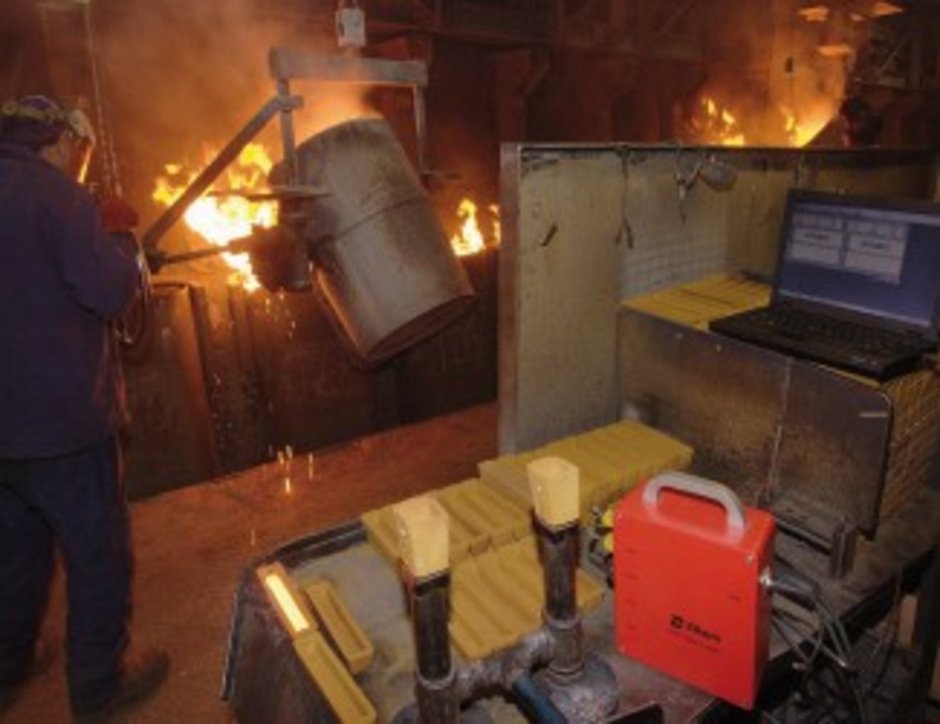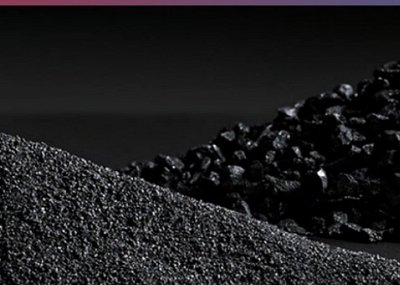A PRECONDITIONING AGENT FOR ALL CAST IRONS
- Consistency in base irons leading to more uniform casting properties
- Improved graphite morphology
- Reduced shrinkage and carbide formation
- Improved mechanical properties
- Reduction in pig iron usage
Preseed™ preconditioner has been proven to be an effective furnace addition for cast irons. Small additions of Preseed™ preconditioner both increase the levels of nucleation in the base iron and at the same time stabilise these crucial particles to give a long lasting effect that can be measured right through to the final properties of the solidified iron. Increased nucleation levels in the base iron can reduce the reliance on inoculant additions which, if the base level of nuclei is low, may not have the power to give the desired structures and properties. This can lead to inconsistencies which can be equalised through the use of Preseed™ preconditioner. Further, increased nucleation levels and subsequent improvements in graphite morphology acts to reduce shrinkage tendency during the later stages of solidification and improves mechanical properties such as tensile strength.
What is Preseed™ Preconditioner?
Preseed™ preconditioner is a 75% Si based ferroalloy containing balanced amounts of the active elements zirconium, aluminium and calcium. Research has shown that these elements are necessary to form stable nuclei in the melt and, by creating these nuclei early in the melting process, then consistent iron is produced for subsequent treatment and casting.
The stability of these nuclei can be demonstrated through measurement of the graphite activity in the iron, thermal analysis being an excellent tool to do this. The positive effects of Preseed™ preconditioner can be shown when iron is held for extended periods of time, even over a weekend when metal is contained in a holding furnace.
Typically, in electric induction melting, a 0.1% addition of Preseed™ preconditioner together with the ferrosilicon/recarburiser additions early in the melting cycle will show positive effects. This low addition rate makes Preseed™ preconditioner a very cost effective method of obtaining consistent and well nucleated cast irons. By creating stable nuclei at this stage of the process and stabilising nuclei formed from the charge materials, then the natural loss of nucleation is prevented. Normally nuclei are lost to oxidation, agglomeration and to the slag, however, Preseed™ preconditioner created nuclei are retained within the melt and are thus available for subsequent initiation of graphite precipitation in the desired form.
Preseed™ preconditioner is produced at the Elkem Bremanger plant in Norway, a world renowned producer of high quality inoculants, such as Superseed®, Superseed® Extra and Ultraseed® inoculants. Elkem Bremanger has ISO 9001, ISO 14001 and ISO/TS 16949 accreditations.
Preseed™ preconditioner is produced in a 0 – 10 mm grading in a variety of packaging to suit the customer’s requirements, however most customers find 25 kg bags very convenient for storage by the furnace. Preseed™ preconditioner is produced to the following specification:
Traditional Preconditioning
The advantages of preconditioning cast irons are well known in the industry. Typically, materials such as silicon carbide, ferrosilicon, and, more recently, high barium containing ferrosilicons have been used at a relatively late stage in the casting process. Whilst providing a short-term benefit, all of these materials suffer from fade and the “preconditioning” effect is lost within minutes. In many respects, these materials may be regarded as pre-inoculants rather than preconditioners.
Preseed™ preconditioner acts in a different way. The traditional method of preconditioning has been to add the alloy at a fairly late stage, together with the nodulariser or immediately prior to tapping from the furnace for example. Preseed™ preconditioner is added to the iron early in the melting cycle, normally together with the ferrosilicon and recarburiser. Preseed™ preconditioner creates stable and long lasting nuclei which are resistant to the rigours of melting and subsequent treatments. Figure 1 shows the long-evity effect of Preseed™ preconditioner through the use of thermal analysis curves.
The curves clearly show the effects of Preseed™ preconditioner. The untreated base metal, if held for 50 minutes, would be expected to lose nucleation with consequent reduction in the low eutectic temperature (LET) and increases in recalescence (R). This would indicate a loss of nucleation that may lead to unsatisfactory and inconsistent castings being produced. Chill and shrinkage could be two of the factors found in these castings.
With a small 0.1% addition of Preseed™ preconditioner, the casting properties have not only been maintained, but the nucleation level can actually be seen to be higher, even after 50 minutes, than in the untreated iron which has not been held. The LET is higher and this leads to a reduction in the recaleascence. Sound castings can be safely made from this iron.
Reduction in Pig Iron Usage
In many countries, there is a significant differential in the prices of steel scrap and pig iron. Pig iron is a source of carbon or carbon/silicon units and makes a contribution to the nucleation state of the iron through the inherent nuclei in the pig iron and through the rust (iron oxide) coating.
The use of Preseed™ preconditioner to replace partially or wholly the pig iron has been shown to be possible, allowing foundries to increase the amounts of returns as a replacement for the pig iron. In cases where the pig iron has been replaced by Preseed™ preconditioner plus steel scrap, then compensation must be made to balance the carbon (and silicon) levels in the iron.
Consistency in Base Irons
Many foundries suffer from occasional structural problems, whether it be a sudden increase in shrinkage, poor graphite structures or iron carbides (chill). The natural tendency is to look at the inoculating process and to attempt to cure the problem by adding more inoculant. Often, the fundamental cause is further back in the iron preparation process and can be related to inconsistencies in the base iron.
Variations in steel scrap, charging sequences, power inputs, unavoidable holding times and fluctuating temperatures can all affect the base iron nucleation. Many foundries use quantitative chemical analysis, such as a spectro, to determine the level of carbon, silicon etc in the base iron before casting, although these analyses do not indicate the level of nucleation, or graphite activity, in the iron. Two furnaces may have the same chemical analysis, however one may have been held for some time, due to a breakdown, for example, and have a significantly lower nucleation than one poured within the normal time. This can lead to two completely different sets of castings being produced, albeit within specification according to the spectro.
Figure 2 demonstrates the effect of variations in the base iron nucleation level. The inoculant addition has a finite effect and a good base nucleation plus the inoculant will give the desired structure and properties. If the base iron nucleation is low, then the inoculant may not have the capability to give sufficient nucleation. Conversely, if the base nucleation is too high, then an over-inoculation state can be reached with the danger of shrinkage.
The use of Preseed™ preconditioner has been demonstrated to equalise the base iron variations to give a much more consistent iron from the furnace, thus leading to more consistent casting properties. As Preseed™ preconditioner has been shown to have a long term effect, any delays in pouring will not result in sub-standard castings.
Case Studies
Increases in the base nucleation and nuclei stability through the use of Preseed ™ preconditioner have led to foundries reporting improved graphite morphology, physical and mechanical properties in grey, ductile and compacted graphite irons:
Grey iron brake discs are produced by induction melting of iron in this European foundry. In competing for a major automotive manufacturer’s contract they produced sample discs with the use of Preseed™ preconditioner. Compared to their normal process they achieved virtually 100% type A graphite and no edge carbides. Their mechanical properties increased by 10%. They won the contract and now use Preseed™ preconditioner in every melt.
Large, high volume automotive component producer with Disamatic moulding lines. Problems with occasional subnodular structures causing delays to production. The use of Preseed™ preconditioner has virtually eliminated subnodular treatments.
High strength large diesel blocks and heads are made in this foundry. If the nucleation is too high, they get shrinkage, if it is too low, they get carbides. The use of Preseed™ preconditioner has helped them to stabilise their metal and the occurrence of such defects is now very rare.
This concast bar producer uses Preseed™ preconditioner in every melt to ensure stability in grey and ductile bars. Since Preseed™ preconditioner was introduced, they have had no failures due to low mechanical properties.
Producer of compacted graphite piston rings reports that the use of Preseed™ preconditioner has considerably improved the dispersion of compacts within the structure and led to more consistent castings and machining properties.
This medium sized ductile iron jobbing foundry used to add 25% pig iron to all melts. They have now replaced half of the pig iron with cheaper steel scrap + 0.1% Preseed™ preconditioner. Over a long period, they have seen no changes to their final iron properties, but have saved large amounts of money by reducing the pig iron addition.
Preseed™ preconditioner
Variation in base iron nucleation levels, whether caused by long holding times, changing temperatures or changes in charge composition can lead to inconsistencies in the properties and microstructure of cast components.
Low nucleation, often associated with high steel scrap charges, can lead to poor structures and properties.
Preseed™ preconditioner has been developed to both create and stabilise nuclei within the base melt and is suited to grey, ductile, CG and alloyed irons. In irons normally melted with a good nucleation, Preseed™ can enable reductions in expensive pig iron.
A major advantage of Preseed™ is its long lasting effects compared to the fade associated with other so-called preconditioners.
EPIC™. A low cost and reliable thermal analysis system
Epic, a robust thermal analysis system, is offered by Elkem as an affordable process control tool.
Thermal analysis gives an accurate picture of the nucleation state in a cast iron, thus giving a prediction of the suitability of the iron to produce sound and consistent castings.
Being simple to operate and designed to be portable, this system can be used anywhere in the foundry without the need for expensive fixed stations. Data is easily recorded onto spreadsheets to comply with quality control systems.
###COMPANY_LINK### <link record:tx_browserdirectory_directory:195 internal-link>![]() Elkem AS
Elkem AS



